Cardinal George dies April 17 after long battle with cancer
By Inside the Vatican Staff, with CNS Reports
Cardinal Francis George, the retired archbishop of Chicago who was the first native Chicagoan to head the archdiocese, died on April 17 at his residence after nearly 10 years battling cancer. He was 78.
Statement by Archbishop Charles Chaput on the death of Cardinal Francis E. George, OMI, Archbishop Emeritus of Chicago
I was deeply saddened today to learn of the death of Cardinal Francis E. George, Archbishop Emeritus of Chicago.
Cardinal George was a close friend over many years, from the time I was a young bishop in Rapid City. We talked often. He was a constant source of good counsel and encouragement. As a fellow religious, he was a model for me of living the Beatitudes well, despite the daily crush of leading a large local Church. As a bishop and a scholar, he was the finest intellect the Church in America has seen in many decades. The only consolation in losing him is knowing that he served the Lord well, and the Lord has welcomed him home.
On behalf of the Church in Philadelphia, I extend prayerful condolences to Cardinal George’s family and many friends as well as Archbishop Blase J. Cupich and the priests, religious, and lay faithful of the Archdiocese of Chicago.
I ask the people of the Archdiocese of Philadelphia to offer prayers for Cardinal George, and our priests to offer Masses for the repose of his soul. All of us are very grateful for the gifts of his life and service to the Universal Church. May God grant him the gift of eternal life, and give peace and consolation to all those who loved, admired, and respected him.
He was one of the most profound minds in the Catholic Church in the United States. His intellect and learning caused him to be nick-named “the American Joseph Ratzinger.” His successor in Chicago, Archbishop Blase Cupich, called Cardinal George “a man of peace, tenacity and courage” in a statement he read at a news conference held outside Holy Name Cathedral to announce the death.
Cupich praised George for overcoming many obstacles to become a priest, and “not letting his physical limitations moderate his zeal for bringing the promise of Christ’s love where it was needed most.” A childhood bout with polio had left the prelate from age 13 on with a weakened leg and a pronounced limp.
In a catechesis session during World Youth Day in Dusseldorf, Germany, in 2005, George told the youths that having polio at the age of 13 left him “a captive in my own body. I soon learned that self-pity got me nowhere. Faith was the way out, because in faith I was not alone, and good can come of something that appears bad at that time.”
The future cardinal was born in Chicago January 16, 1937, to Francis and Julia (McCarthy) George. He attended St. Pascal Elementary School on Chicago’s northwest side, the parish where he would be ordained a priest December 21, 1963. After being rejected by the archdiocesan seminary because of his disability, he instead attended the Oblate-run St. Henry Preparatory Seminary in Belleville, Illinois.
He entered the Missionary Oblates of Mary Immaculate August 14, 1957. His formal education continued through a string of academic degrees including bachelor’s and master’s degrees in theology from the University of Ottawa in Canada; a master’s in philosophy from The Catholic University of America in Washington; a doctorate in philosophy from Tulane University, New Orleans; and a doctorate of sacred theology in ecclesiology from the Pontifical Urban University in Rome.
George participated in two conclaves. The first was in 2005 to elect a successor to St. John Paul II in 2005 — Pope Benedict XVI — and the second in 2013 in which Pope Francis was elected.
In addition to English, he spoke French, Italian, Spanish and German.
In his October 23-November 1, 2012, column in the same paper, George discussed a remark he had made which became perhaps the most famous single remark of his life: “I expect to die in bed, my successor will die in prison, and his successor will die a martyr in the public square.”
He explained his remark this way:
“Speaking a few years ago to a group of priests, entirely outside of the current political debate, I was trying to express in overly dramatic fashion what the complete secularization of our society could bring. I was responding to a question and I never wrote down what I said, but the words were captured on somebody’s smart phone and have now gone viral on Wikipedia and elsewhere in the electronic communications world.
“I am (correctly) quoted as saying that I expected to die in bed, my successor will die in prison, and his successor will die a martyr in the public square.
“What is omitted from the reports is a final phrase I added about the bishop who follows a possibly martyred bishop: ‘His successor will pick up the shards of a ruined society and slowly help rebuild civilization, as the Church has done so often in human history.’
“What I said is not ‘prophetic’ but a way to force people to think outside of the usual categories that limit and sometimes poison both private and public discourse.”
And he concluded that essay this way, in words worth reflecting upon: “Instead of a world living in peace because it is without religion, why not imagine a world without nation states?… Every major war in the last 300 years has been fought by nation states, not by the Church…
“The state apparatus for investigating civilians now is far more extensive than anything dreamed up by the Spanish Inquisition, although both were created to serve the same purpose: to preserve a government’s public ideology and control of society, whether based on religion or on modern constitutional order.
“… The point is that the greatest threat to world peace and international justice is the nation state gone bad, claiming an absolute power, deciding questions and making ‘laws’ beyond its competence.
“Few there are, however, who would venture to ask if there might be a better way for humanity to organize itself for the sake of the common good. Few, that is, beyond a prophetic voice like that of Dorothy Day, speaking acerbically about ‘Holy Mother the State,’ or the ecclesiastical voice that calls the world, from generation to generation, to live at peace in the kingdom of God.
“God sustains the world, in good times and in bad. Catholics, along with many others, believe that only one person has overcome and rescued history: Jesus Christ, Son of God and Son of the Virgin Mary, savior of the world and head of his body, the Church.
“Those who gather at his cross and by his empty tomb, no matter their nationality, are on the right side of history. Those who lie about him and persecute or harass his followers in any age might imagine they are bringing something new to history, but they inevitably end up ringing the changes on the old human story of sin and oppression.
“There is nothing ‘progressive’ about sin, even when it is promoted as ‘enlightened.’
“The world divorced from the God who created and redeemed it inevitably comes to a bad end. It’s on the wrong side of the only history that finally matters.”
And he concluded, referring to the Synod on the New Evangelization which was taking place in Rome at that time, in 2012, “because entire societies, especially in the West, have placed themselves on the wrong side of history” (but he might as well have been referring to the Synod on the Family, which will have its second and final session this coming October 2015): “Let’s pray the rosary so that the Holy Spirit will guide and strengthen the bishops and others at the Synod as they deliberate about the challenges to preaching and living the Gospel at this moment in human history.”
May the soul of this faithful servant of both man and God rest in peace. “Quoniam tu es, Domine, spes mea…” (“For you are, Lord, my hope.”)
Hundreds of clergy, laity mourn Montreal’s Cardinal Jean-Claude Turcotte, “cardinal of the working people”
By Alan Hustak (Catholic Register Special, Reprinted with Thanks to the Catholic Register)
It was dignified and unpretentious, a funeral fit for Montreal’s popular Cardinal Jean-Claude Turcotte, who died on April 8 at the age of 78.
Two fellow cardinals, more than 50 bishops and archbishops, along with hundreds of priests and parishioners packed Mary Queen of the World Cathedral April 17 for the three-hour service. Those who could not get into the cathedral watched the proceedings on a giant television screen set up in Place du Canada, a park across the street.
Quebec’s Lieutenant Governor, Pierre Duchesne, Premier Philippe Couillard and three previous provincial premiers, including Lucien Bouchard, who delivered a eulogy, were in the front pews. Liberal leader Justin Trudeau was conspicuous by his absence. As a choir sang the processional hymn, Peuple de Dieu en march, mourners of all ages rose from their places to quietly remember Turcotte.
Several homeless people and youth ministers followed the ceremonial cross up the main aisle of the cathedral ahead of a procession of bishops as a reminder of Cardinal Turcotte’s dedication to the underprivileged and to youth ministry.
As Sr. Nicole Fournier, who works with the homeless at local shelters, told those in the packed pews, the cardinal not only put his faith in God, but in humans. “He was non-judgmental, and always ready to offer advice.”
In an interview, Quebec Archbishop Gerald Cyprian Lacroix, Canada’s Primate, described Cardinal Turcotte “as a cardinal for the working people. He was a man of humility, a man with a sense of humor, who saw Christ in the unfortunate. He loved talking to people.”
Cardinal Thomas Collins of Toronto agreed. “Above all, he was wonderful, down to earth, earthy and compassionate.”
Montreal Archbishop Christian Lepine officiated at the service. Papal Nuncio Luigi Bonazzi read a telegram from Pope Francis, who called Turcotte “a zealous pastor who was as attentive to contemporary challenges, and as a faithful pastor who served not only his own diocese but also at the national level as well as being highly regarded as a member of the Roman dicasteries.”
The Eucharist was celebrated as incense swirled above the neo-baroque high altar, and the Salve Regina was sung as the casket was moved to the funeral chapel in the 120-year-old cathedral, where all of the city’s bishops are interred. Cardinal Turcotte was interred in a vault in the top tier.


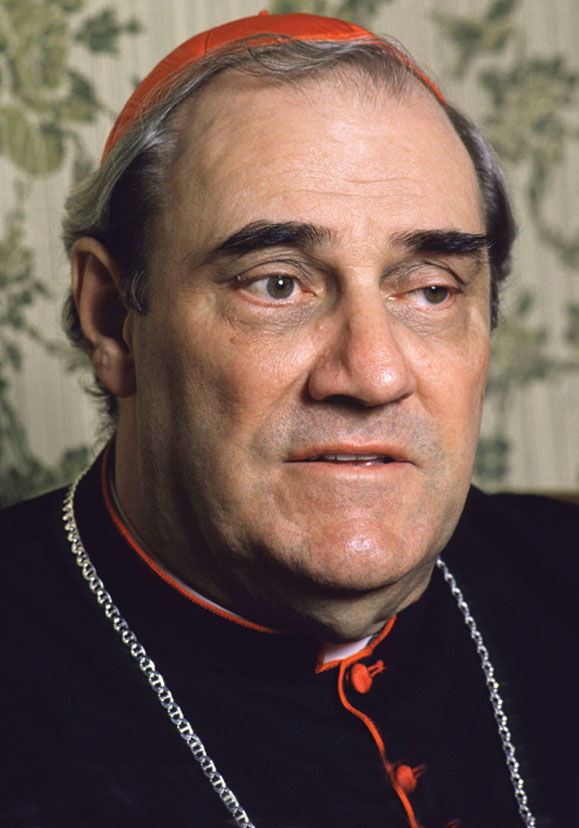
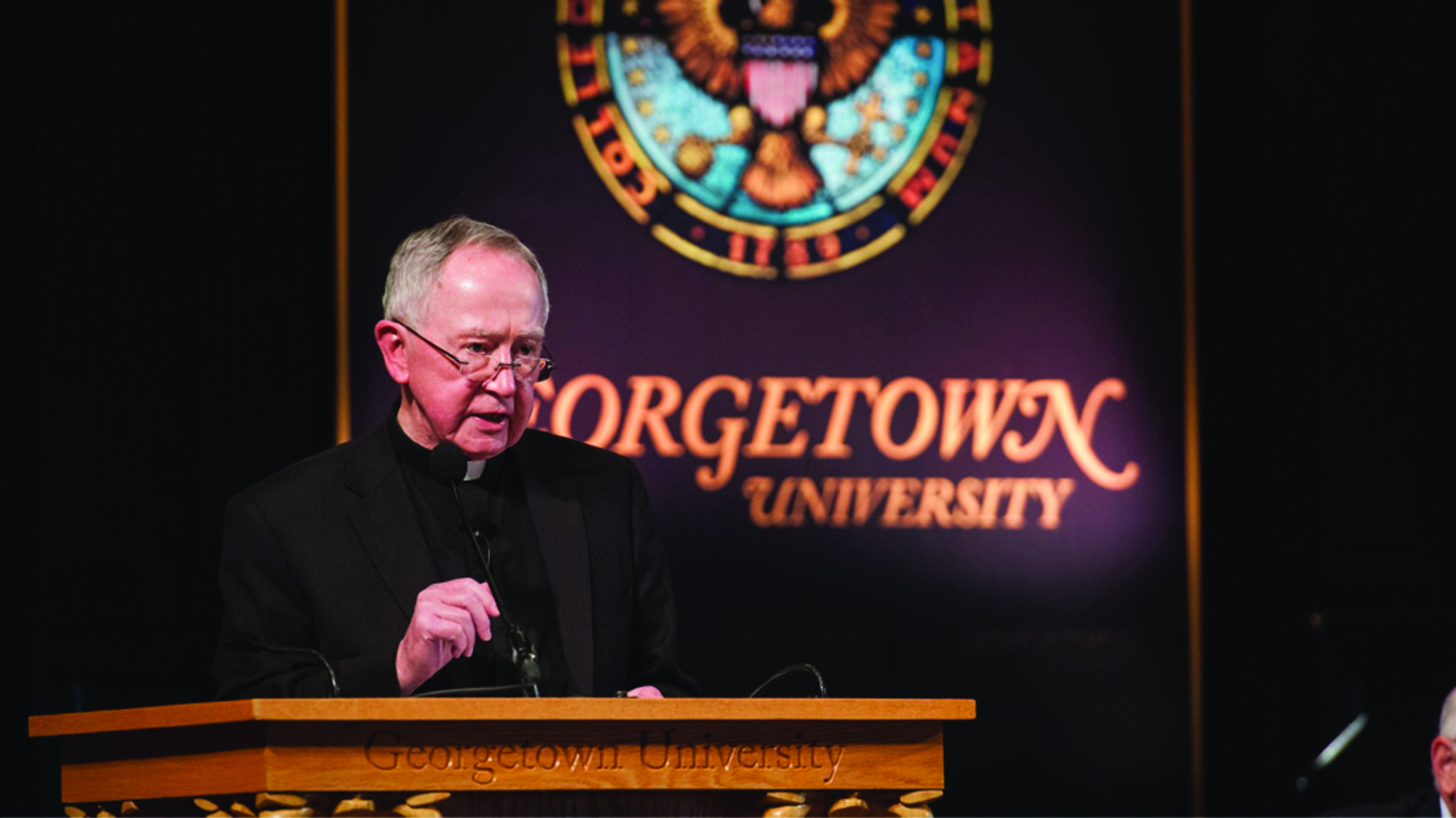
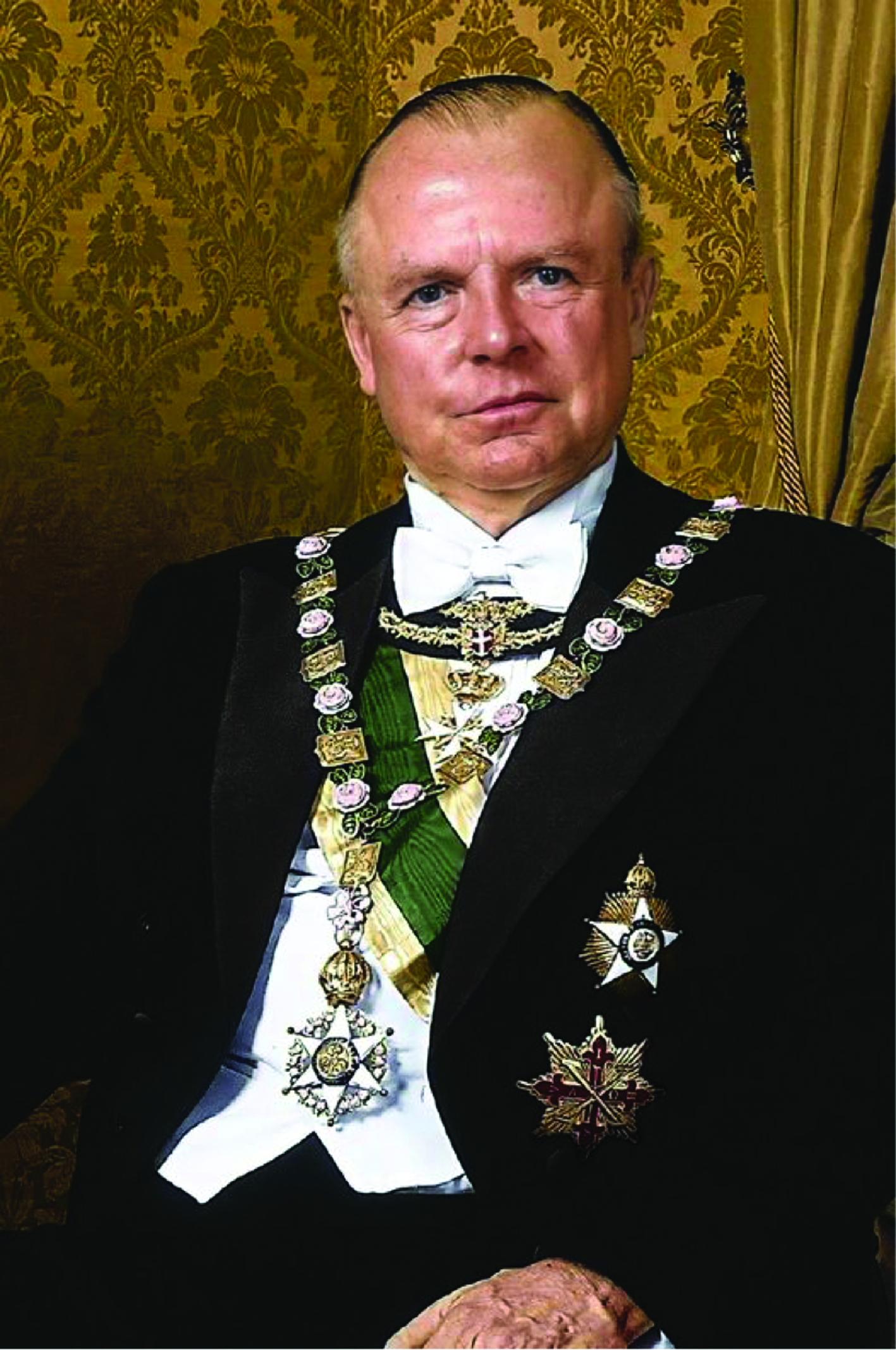
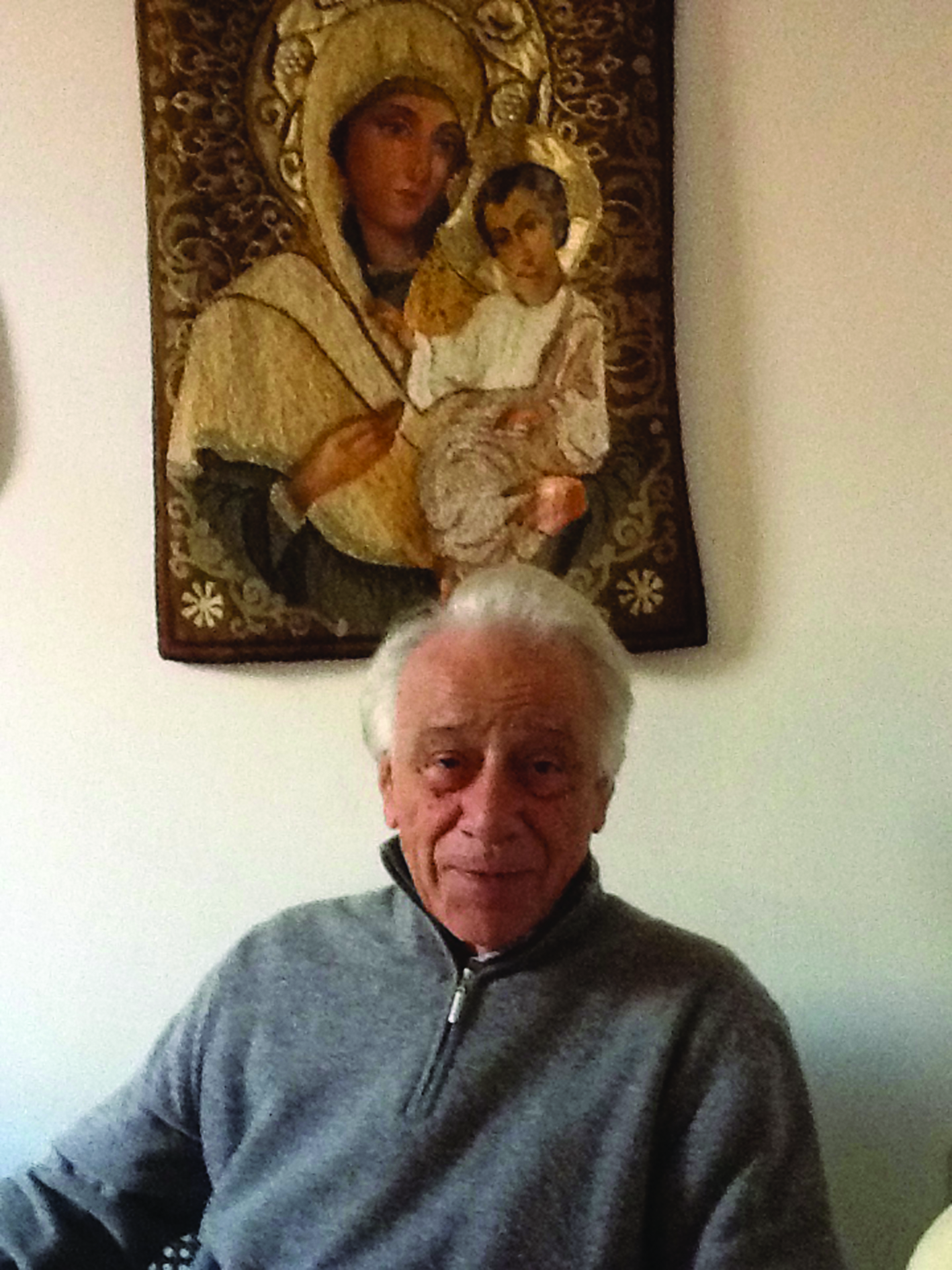
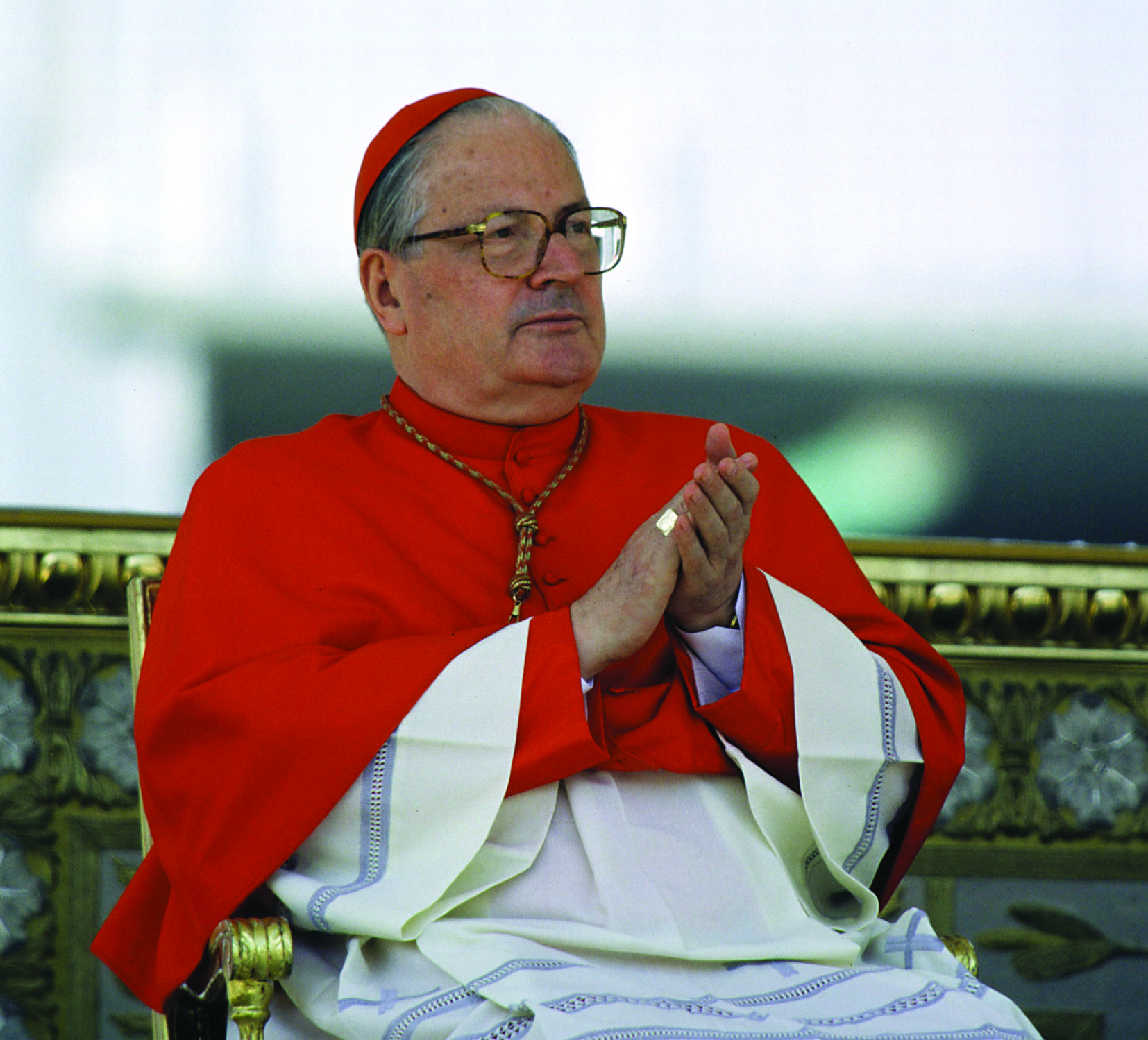
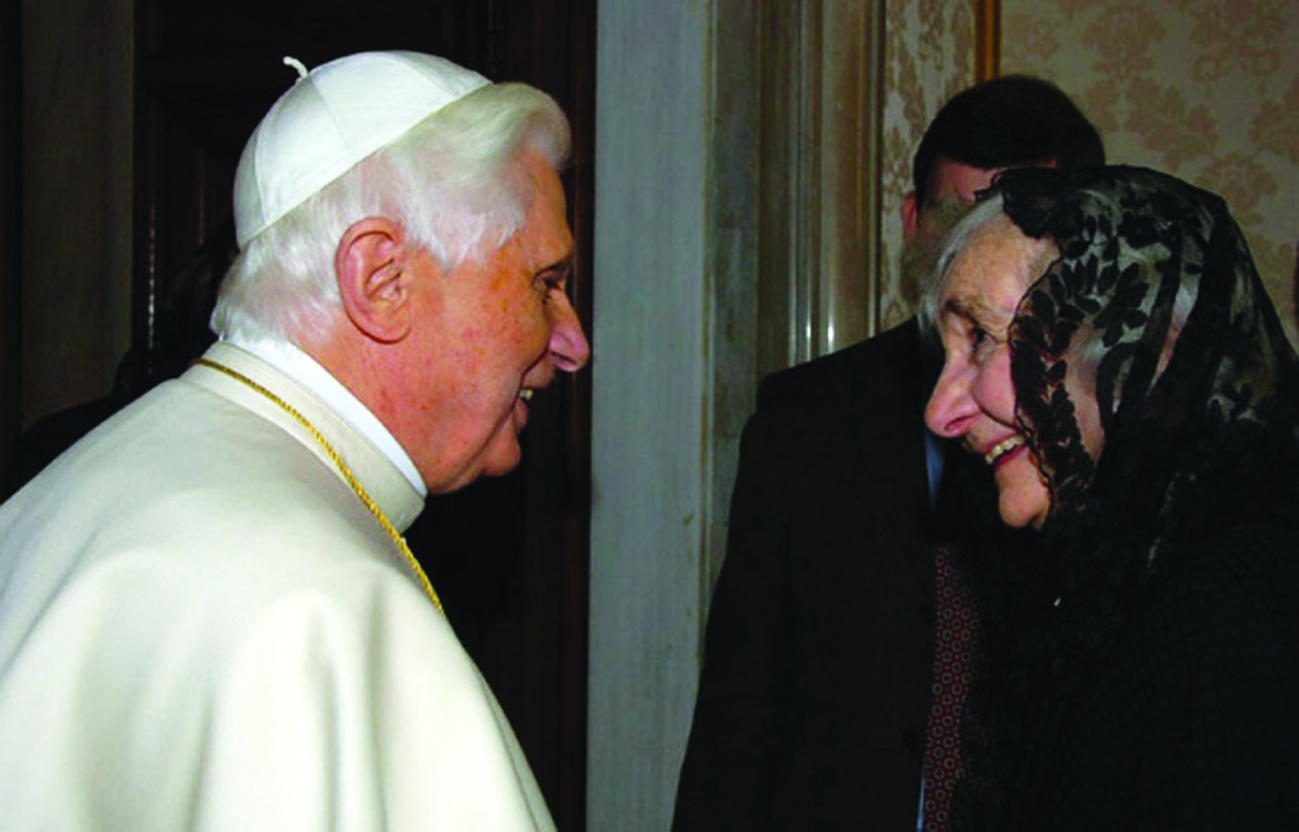
Facebook Comments